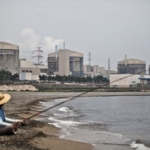
The building of a P6-billion ($112 million) cancer center has been approved by President Ferdinand Marcos Jr., marking the beginning of his infrastructure project, which would rely more on private funding than his predecessor’s.
Marcos presided over the National Economic and Development Authority (NEDA) Board, which authorized the Public-Private Partnership funding for the University of the Philippines-Philippine General Hospital (UP-PGH) Cancer Center project.
With an area of 3,000 square meters, the cancer center will be built on the UP-PGH campus in Manila. The total capacity of the building will be 300 beds (150 charity beds for the UP-PGH Area and 150 private beds for the private area), 15 to 20 floors, 350 parking spaces, 1,000 square meters of commercial space, and space for three linear accelerator bunkers. A linear accelerator is a device utilized in radiation therapy.
The successful bidder will be responsible for the design, construction, and commissioning of the complete new hospital facility. In addition, it will acquire, maintain, and periodically replace medical and non-medical equipment.
The UP-PGH will donate the site to the bidder at no cost, transfer the current equipment to the cancer institute, and provide clinical services to charity patients in the UP-PGH service area. In addition, it will do clinical teaching and research.
Keep Reading
Both the private entity and UP-PGH will bear all costs associated with clinical personnel, medications, and consumables.
The second greatest cause of mortality in the Philippines is cancer, and the UP-PGH needs to increase its capacity.
According to the project summary, UP-PGH handles 70,000 outpatients with cancer annually, and the National Capital Region will need 1,800 cancer beds by 2030 to fulfill demand. It also highlights the need for new radio oncology equipment, especially given the predicted growth in cancer incidence over the coming decades.
The public will be invited to submit bids for the 300-bed hospital, which will be organized as a 30-year Build-Operate-Transfer (BOT) system.
“The BOT model is a contract that allows a private partner a concession to fund, construct, and run a project for a defined duration. After that time period, the project is returned to the governmental agency that initially issued the concession,” the White House stated.
“The hospital will provide a comprehensive spectrum of cancer treatments, including radio oncology (radiotherapy), imaging, and medical oncology, as well as assistance for the UP-PGH’s teaching and research operations,” it stated.
According to statistics compiled by Rappler, the project was featured on the final list of infrastructure projects presented by former president Rodrigo Duterte’s economic team in 2021. It was labeled as “in the pipeline,” which meant that projects had not yet reached the advanced stages of implementation at that time.
Marcos has demonstrated an openness to PPPs, in contrast to Duterte, who prefers government-to-government sovereign borrowings to fund his ambitious infrastructure ambitions.
This, as Marcos’ economic planners attempt to maximize their budgetary flexibility in the face of Duterte’s record-breaking debt levels.
When Marcos became president, he inherited P12.79 trillion in sovereign debt, and by the end of 2022, government borrowings will surpass P13 trillion.



























